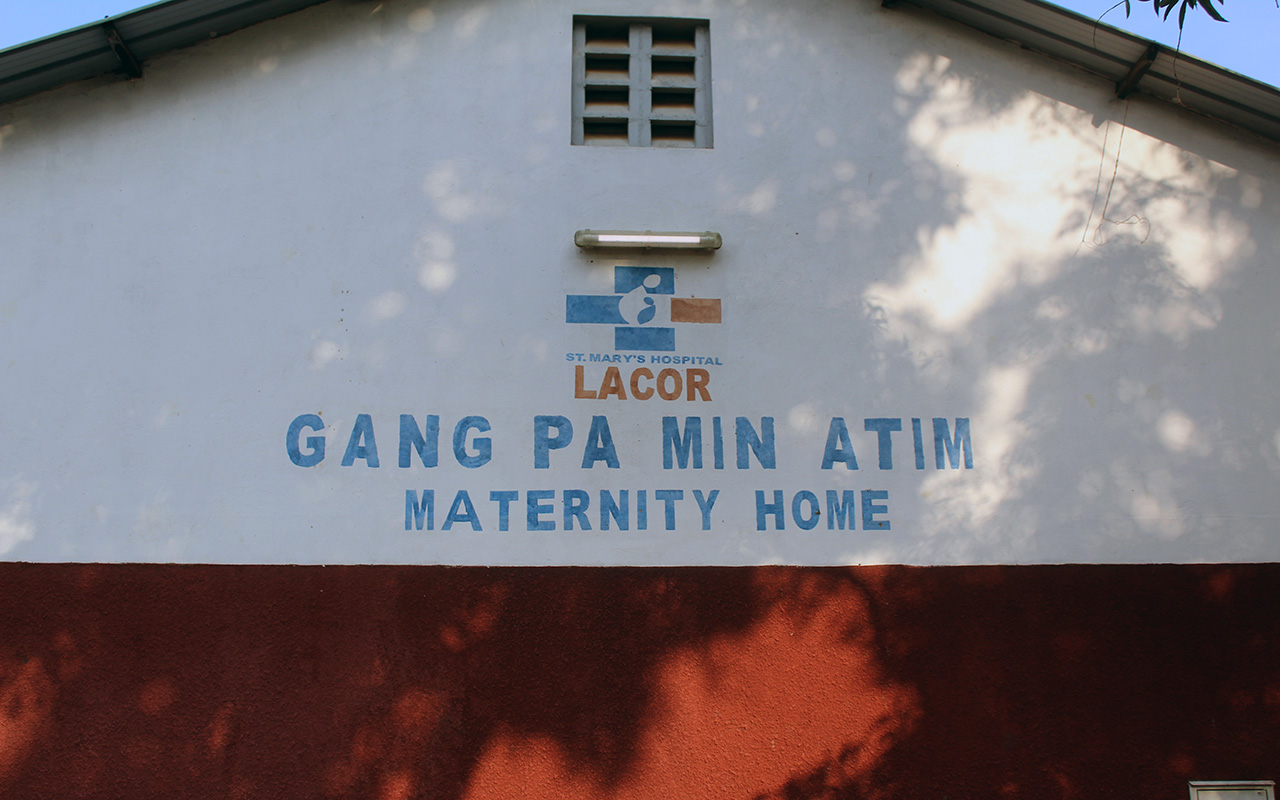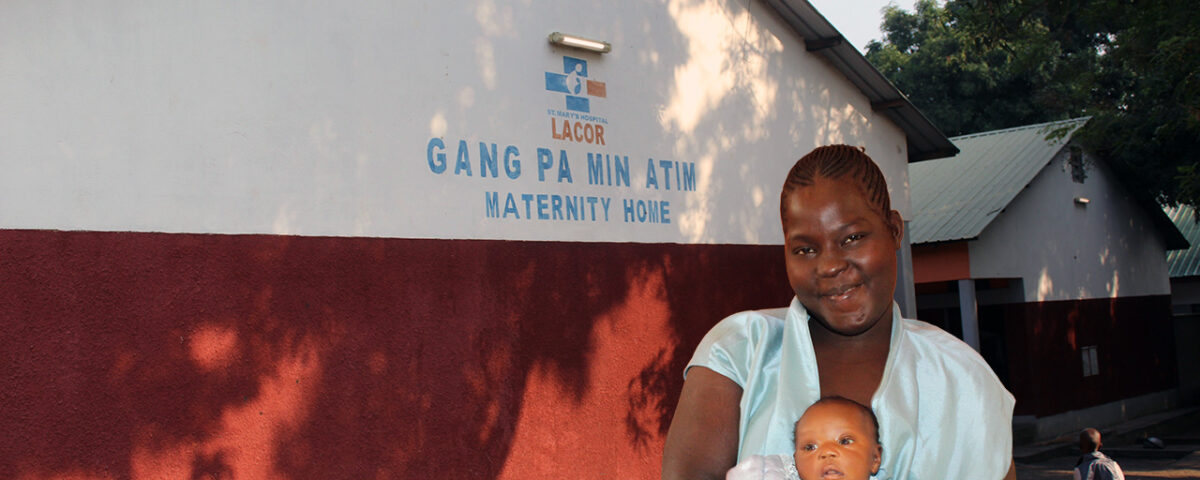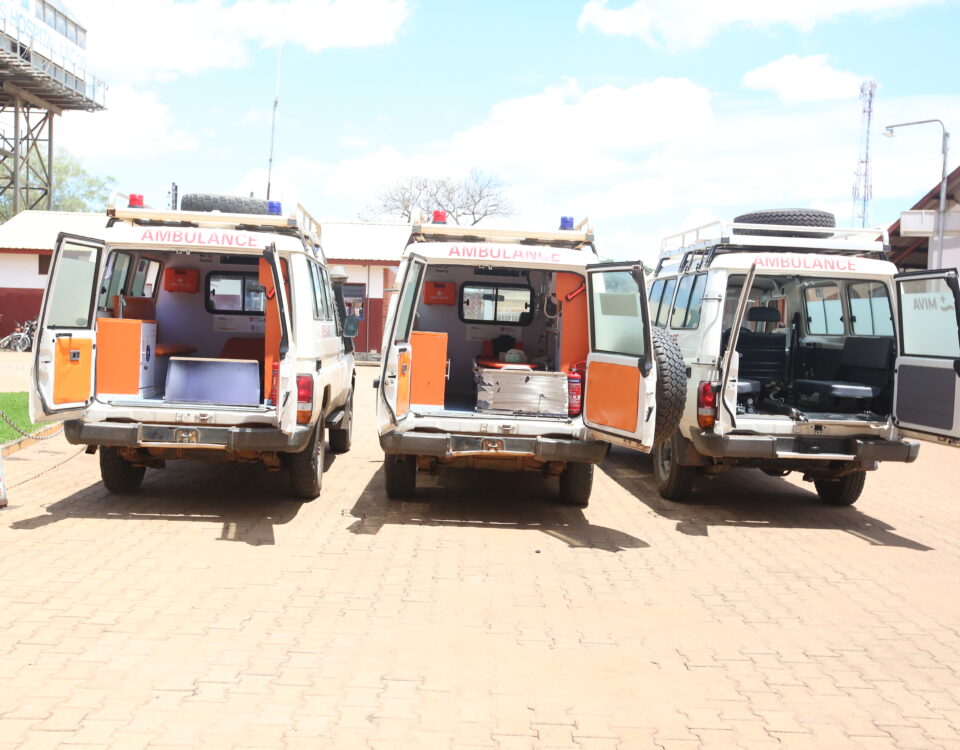Established in 2013 as a Maternity Waiting Home (MWH) to facilitate timely access to skilled care for high-risk pregnant women residing in remote areas, Gang Pa Min Atim is more than just bricks and mortar—it’s a lifeline. In there, hundreds of women – expectant mothers whose homes are far away from the hospital but are due in a few days – have found comfort and a home away from home.
The stories of many first-time parents and newborns have found their first pages in this home. But perhaps the most intriguing of them all is the story of one brave woman: Akwero Christine. In a world where joy, trials, and tribulations are intertwined, life can lead you through unprecedented paths, especially the less privileged persons living with disabilities.
15 years ago, then a young, healthy, and vibrant 5-year-old resident of Latin-ling Parish, Geregere Village, Omot Sub-county, Agago district, Akwero managed to survive the perils of landmines and rebel gunfire at the peak of the Lord Resistance Army insurgency in Northern Uganda.
But a numb-like and paralyzing sensation felt only for a few days waged a war that forever changed Akwero’s life.
It all began in the year 2006 when she suffered paralysis in both legs, a condition referred to as paraplegia, during her time at an internally displaced people’s camp. She was urgently transported to Dr. Ambrosoli Memorial Hospital in Kalongo, where she underwent medical treatment for two months. She had no sensations in her legs.
Akwero incurred pressure injuries on her hips and posterior as a result of immobility during her stay in the hospital. She was then entrusted to Medical Teams International (MTI), a faith-based humanitarian aid organization that has been delivering life-saving care to refugees, disaster survivors, mothers, and children in Uganda since 2004.
Life relentlessly threw challenges at Akwero. Her father’s death by suicide further complicated Akwero’s already overwhelming situation. And when she needed her mother the most, her mother found a new partner and she was abandoned.
MTI had to hire a caretaker to look after her for five months before she was eventually taken in by AVSI, the Association of Volunteers in International Service, a prominent non-profit organization established in Italy in 1972.
Repeated infections eventually led to the amputation of her right leg, throwing her future into oblivion. Tough times are never easy, but tough people like Akwero show incredible strength in the face of adversity.
In 2007, a ray of hope appeared when she was connected to Lacor Hospital through AVSI. Here, she received training on managing pressure sores and coping with disability in the community.
From Lacor, she was sent to St. Jude Children’s Home, a private Catholic non-profit organization founded in 1987 by Bro. Elio Croce, a Comboni Missionary Brother to provide comprehensive care and support to vulnerable children, preparing them for the future. She was enrolled in school where she started her primary education.
Akwero refused to let her disability and late school enrollment define her purpose in life. She brilliantly navigated the turbulent sea of life from primary three to senior five where she had to stop because of the sudden death of Brother Elio Croce.
It felt as if her entire world had come crashing down right before her own eyes. Yet again, she refused to let that hold her back. Instead, she started using her vocational skills learned from the children’s home to make a variety of jewelry – beads, bracelets, and more to make ends meet.
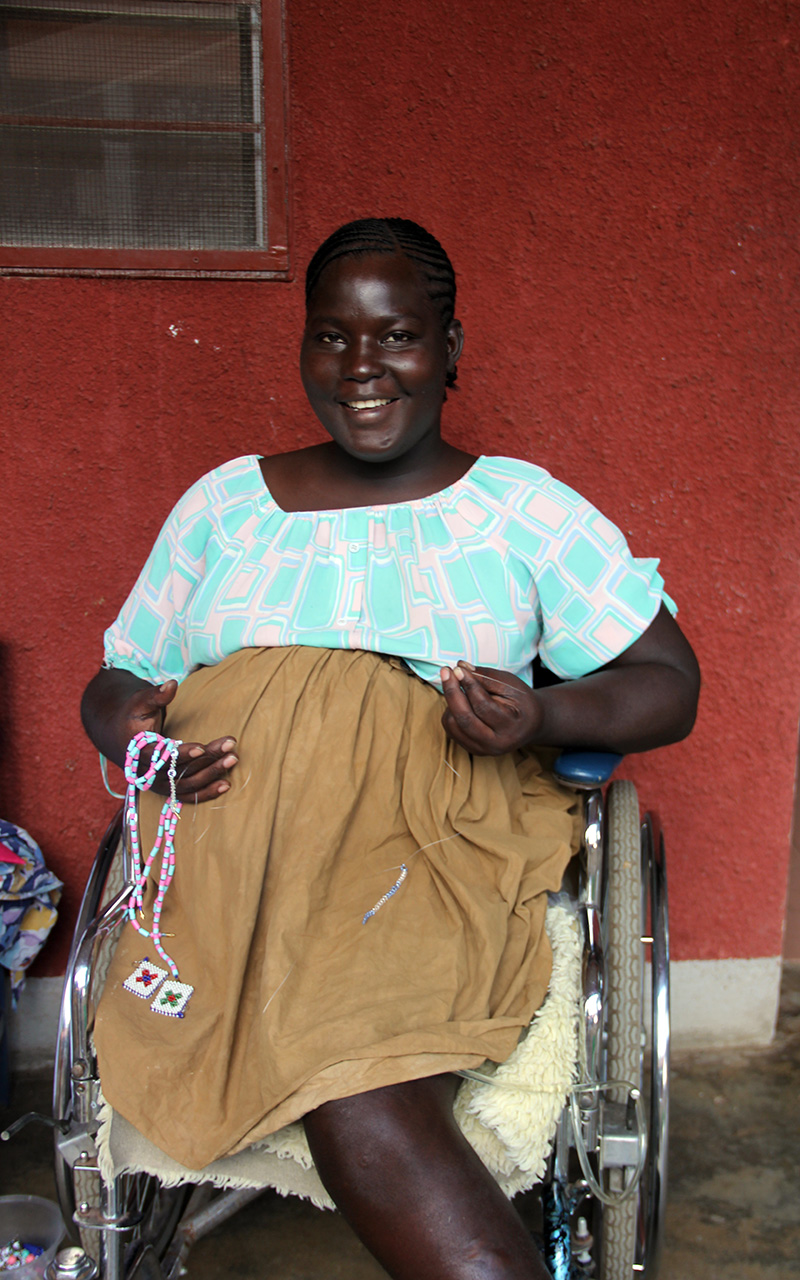
Akwero displays some of her handiwork
By this time, she had met Mary Ann, a selfless cancer specialist treating women and children at Lacor Hospital, sometimes from her own coffers. Mary Ann gladly purchased all the materials Akwero needed for her new venture. This became her lifeline, providing income for her needs.
At the age of 24, there was a strong sense of obligation to initiate a family and perpetuate her lineage, while seeking a life partner, a confidant, and someone who would eventually refer to her as “mother.”
She found herself in love and subsequently pregnant for a man; a fellow patient she met at the hospital during her many visits and admissions. For a moment, everything seemed to be going according to plan, but soon the man terminated their relationship and escaped from the hospital. It was a déjà vu.
Heavily pregnant, Akwero had to put all that behind and move on. Because of her disability, doctors could not risk her living far away from the hospital and so she had to move to Gang Pa Min Atim in her third trimester. She got all the necessary support from friends and nurses who supplied her needs including food and clothing and wheeling her around the hospital.
On the 26th of May, 2024, Akwera had a cesarean birth to a healthy baby girl whom she named after the love of God, Pimar-Parwot Rebecca.
As she held her baby close, feeling the weight of this new life in her arms, with each breath and heartbeat, a bond so deep, so pure, so sweet was created. In the laughter of her baby, she found joy beyond the skies and moments she would cherish forever. The challenges she had faced, and the obstacles she had overcome, all faded away.
“My baby is a blessing. I believe God does not give someone a child without giving them the means to take care of them,” she says.
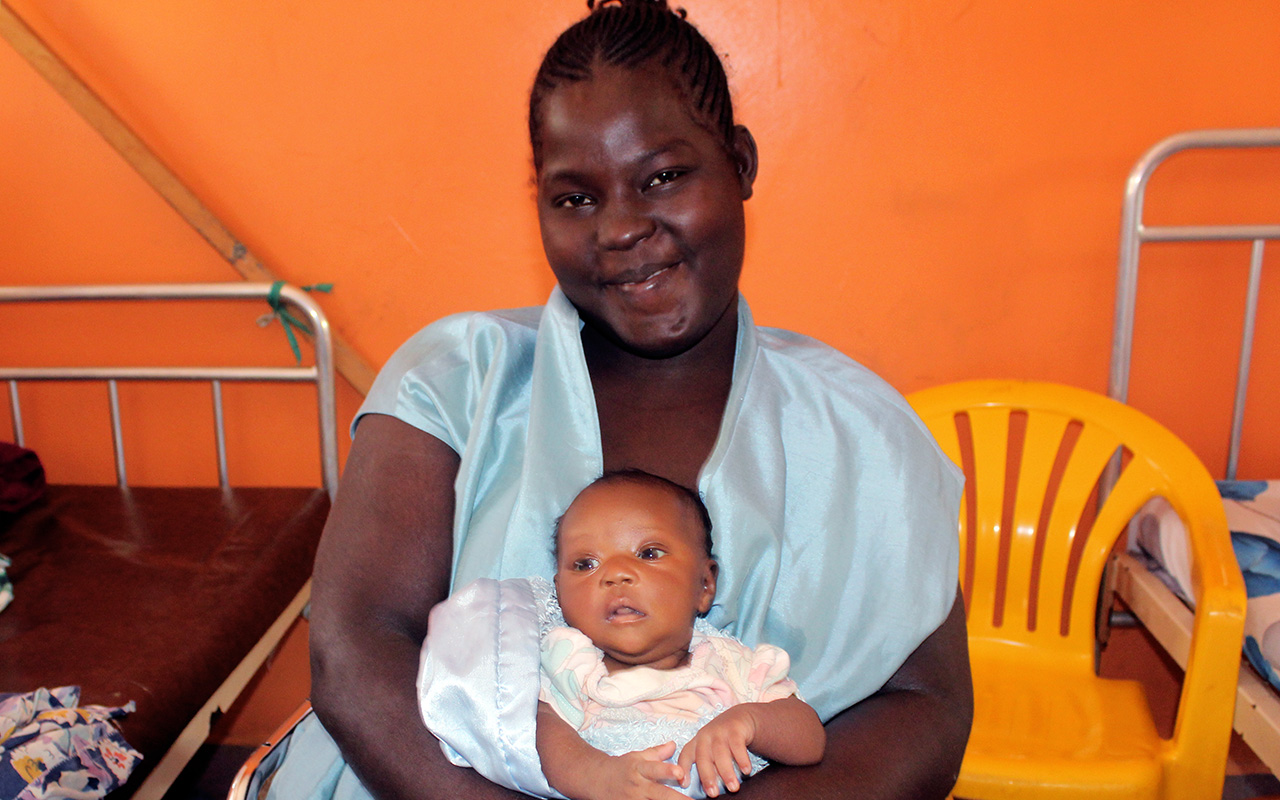
Akwero and her baby
Akwero has vowed to do everything for her baby to succeed and to defend her with her life. For now, Gang Pa Min Atim is a safe haven, but only for a while.
There is limited available data on the exact number of abandoned disabled pregnant women. This is likely due to the sensitive and underreported nature of the issue. However, a study by the World Health Organization estimated that approximately 10% of women worldwide experience some form of disability.
Additionally, according to a report by the United Nations Population Fund, disabled women are at a higher risk of experiencing violence and abuse, including abandonment. This can be particularly concerning for pregnant disabled women who may be vulnerable and in need of support and assistance.
Gang Pa Min Atim (the home of Atim’s mother), named after Dr. Teasdale Lucille, a pioneer surgeon at Lacor Hospital – whose daughter Atim is now responsible for resource mobilization for the hospital – stands as a beacon of hope.
The implementation of a Maternal Waiting Home at Lacor Hospital has demonstrated a positive impact on maternal and neonatal health outcomes. This underscores the significance of MWHs as an effective strategy in promoting safe motherhood and newborn health in resource-limited settings.
And most importantly, for people like Akwero to not only walk out of the hospital alive, but with healthy bouncing babies. What a joy!
